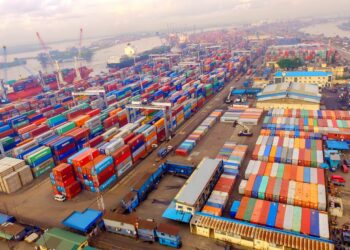Nigeria is losing $600 million due to under reporting of gas flaring every year even as they tasked operators in the oil and gas sector to fully implement the mechanism put in place by the Advocacy for Gas Flared Accountability in Nigeria (AGFAN) to avert the trend.
Stakeholders who spoke with NATIONAL ECONOMY, at the Accountability for Gas Flared and Clean Energy Advocacy (AGFACEA) technical session with relevant stakeholders and regulatory agencies, being organised by AGFAN, with support from the United States Agency for International Development (USAID) and Palladium, on Wednesday, in Lagos, said Nigeria is a major gas flarer/global GHG emissions with 347million tonnes of Co2.
The CEO, Initiative for Community Development, Benjamin Ogbalor said, gas flaring is a lose-lose situation, adding that, there has been heightened concerns and agitations in oil producing communities due to increased incidence of regular high temperature or thermal gradient and unprecedented heat for humans, crops and animals in flare vicinity.
As part of efforts to eradicate gas flaring in Nigeria, Ogbalor said the federal government took a step by increasing the penalty for gas flaring, from 10 cents to $2, to force oil companies to convert the gas flared into something useful to the society.
However, since 2018 when the price of gas flared was increased to $2, the CEO said, the National Oil Spill Detection and Response Agency (NOSDRA), with the help of satellite data, has proven that there is discrepancy of what has been flared and what the oil companies are reporting, adding that, these companies are reporting lower figure than what is being captured by the satellite.
“There are about four sources of gathering data of the volume of gas that has been flared. We have the Global Gas Flaring Tracker from the World Bank, NOSDRA, the operators and the Nigeria Extractive Industries Transparency Initiative (NEITI) system, but Nigeria tends to rely on the report of the operators,” Ogbalor revealed.
Instead of just relying on what the oil operators are reporting, Ogbalor said, AFGAN Cluster, which comprises of 10 non-governmental organisations, have come up with mechanism to track the exact volume of gas flared.
“Part of our recommendations is for NEITI to take all the figures from World Bank, operators and NOSDRA together, review them properly, then come up with a figure that is more accurate for Nigeria and share that figure with the National Assembly, the ministry of finance, the media and NGOs, to ensure accountability,” he added.
The CEO revealed that the National Assembly has adopted the mechanism and had directed all ministries and government agencies to ensure that they implement it, while advocating for strict implementation of the mechanism.
“If the mechanism is implemented, the country stands to gain a lot from the penalty which was like $600 million in 2020. This figure can, to some extent fund the 2023 budget,” he added.
In the same vein, the managing director/CEO of ANPEZ Centre for Environment and Development, Everest Nwankwo has tasked all relevant stakeholders in the oil and gas industry, to support action to harmonise and ascertain volume of gas flared/vented and payments for gas flare penalties; support action to coordinate flare payment
adjustment; support action to use panelties to support clean energy development and poverty alleviation programmes and support national towards emission reduction to meeting Nigeria’s Intended Nationality Determined Contributions.





